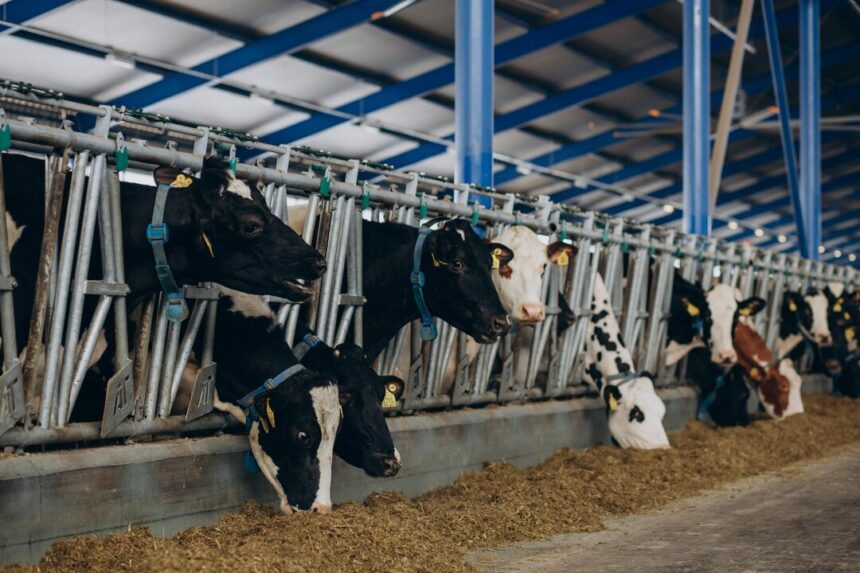Proper livestock nutrition is essential for maintaining animal health, boosting productivity, and achieving cost-effective farming. Feed mixers play a pivotal role in ensuring that livestock receive a balanced diet by evenly blending various feed components, such as grains, forages, minerals, and supplements. These machines streamline the feed preparation process, improve nutrient distribution, and minimize waste, making them indispensable tools for modern livestock management.
The Importance of Balanced Rations
Livestock diets must be carefully balanced to meet the nutritional needs of specific animals, whether for growth, milk production, reproduction, or meat quality. Imbalanced rations can lead to poor health, reduced productivity, and higher feed costs. Feed mixers ensure that each bite of feed contains the right proportion of nutrients, reducing the risk of overfeeding or underfeeding certain ingredients.
Types of Feed Mixers
Feed mixers come in various designs, each suited to different farming operations and feed types:
- Vertical Mixers
Vertical mixers are compact and ideal for small to medium-sized farms. They use an auger to lift and mix feed ingredients. These mixers are well-suited for blending dry feeds and forages but may struggle with very wet or sticky materials. - Horizontal Mixers
Horizontal mixers use paddles or ribbons to blend feed ingredients in a trough. They are efficient for larger operations and can handle a wider variety of feed types, including silage, grains, and supplements. - TMR Mixers
Total Mixed Ration (TMR) mixers are designed to create a uniform mix of all feed components, ensuring that livestock consume a balanced diet with every bite. TMR mixers are widely used in dairy and beef cattle operations and can process large volumes of feed efficiently. - Self-Propelled Mixers
These mixers combine feed mixing and transportation into one unit. Self-propelled mixers are ideal for large farms, allowing for quick and efficient delivery of mixed feed to multiple feeding locations.
How Feed Mixers Improve Nutrition
Feed mixers play a crucial role in maintaining consistency and quality in livestock nutrition:
- Uniform Mixing
By thoroughly blending ingredients, feed mixers prevent livestock from selectively eating preferred feed components, ensuring a balanced intake of nutrients. - Accurate Inclusion of Additives
Mixers allow for precise incorporation of supplements, minerals, and vitamins, which are often required in small quantities. This ensures animals receive the exact nutrients they need for optimal performance. - Reduction of Feed Waste
Properly mixed feed reduces sorting and wastage, lowering feed costs and ensuring that valuable nutrients are not discarded. - Improved Digestibility
Feed mixers can break down fibrous materials, improving their digestibility and making nutrients more accessible to livestock. - Flexibility for Different Diets
With feed mixers, farmers can easily adjust rations to meet the nutritional needs of different livestock groups, such as calves, lactating cows, or finishing cattle.
Choosing the Right Feed Mixer
When selecting a feed mixer, farmers must consider factors such as farm size, livestock type, feed ingredients, and budget. Key features to evaluate include mixing capacity, efficiency, durability, and ease of operation. For example, farms with large herds may benefit from high-capacity TMR mixers, while smaller operations might opt for a vertical mixer.
Maintenance and Proper Use
To ensure feed mixers perform optimally, regular maintenance is essential. Blades, augers, and paddles should be inspected for wear and replaced as needed. Calibration of scales is also crucial to maintain accurate ingredient measurements. Operators must follow manufacturer guidelines for loading and operating the mixer to achieve consistent results.
Feed mixers are invaluable tools in modern livestock nutrition, helping farmers deliver balanced, high-quality diets that promote animal health and productivity. By investing in the right feed mixer and maintaining it properly, farmers can optimize feed efficiency, reduce costs, and support the well-being of their livestock. Understanding the role of feed mixers in nutrition is a key step toward sustainable and profitable livestock farming.
Join 'Farmers Mag' WhatsApp Channel
Get the latest Farming news and tips delivered straight to your WhatsApp
CLICK HERE TO JOIN






